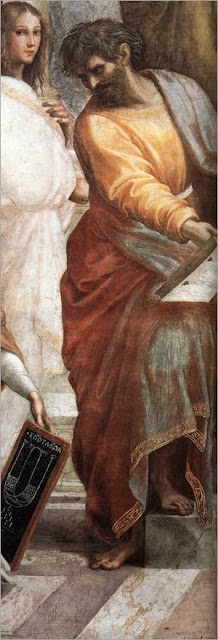It is a common view that the Bible was written by God. Or that the various texts that constitute it are the result of God writing through human hands. Prophetic hands such as Moses' or John's.
An extension of this thinking is that if any other hands meddle with the Texts they become corrupt. The divine original has been lost and what remains cannot be trusted, whether it came from God or not.
 This 'God-as-author' view does more harm than good however. Sure it is deeply true that God's voice is present in Scripture, but insisting upon the divine issuance of Scripture is not necessary at all. We can avoid one of our society's major problems with Scripture by simply distinguishing between these two. That is, when God speaks in Scripture we are to certainly take what God says as True. But we are not to take Scripture itself as from God. As if God wrote it and there is some original, untainted version, to which we have no access.
This 'God-as-author' view does more harm than good however. Sure it is deeply true that God's voice is present in Scripture, but insisting upon the divine issuance of Scripture is not necessary at all. We can avoid one of our society's major problems with Scripture by simply distinguishing between these two. That is, when God speaks in Scripture we are to certainly take what God says as True. But we are not to take Scripture itself as from God. As if God wrote it and there is some original, untainted version, to which we have no access.
There is another problem as well with the God-as-author view. More than just disconnecting us from Scripture it has also caused us, as a people, to lose touch with the art of writing Scripture. Whether God is the original source of the Scripture written or not.
I say this for two reasons.
First, in believing that Scripture is God-authored we dismiss the possibility of it being the work of human hands. It may be in us to theologize, or to provide commentary on Biblical texts, but the writing of Scripture is for God alone. It is neither for us nor in us to take on such a holy task as Paul or Mark, and so we don't. We don't engage in the work of writing Scripture since it is beyond our place as humankind.
Second, in believing that Scripture is God-authored the editing or redaction of Texts is an offence. We lose touch with the fact that this is precisely how Scripture comes into being: through the successive iterations and perfections of generations throughout history.
Because we think that God wrote Scripture any change we see in a Biblical text over time is not appreciated as part of the writing process and as necessary to producing the truth-revealing power of Scripture but rather it is despised as a spoiler of what was once, or may once have been, a holy text. We have lost the art of writing Scripture, which above all is multi-generational and involves the (re)expression of a wisdom that is generations in the making. A wisdom that is very much like a tree.
As a people we must recognize once again that Scripture is produced just like any other piece of literature: It doesn't come fully formed from the divine womb only to degrade under the profane influence of the world but rather Scripture is the result of a text's inception and maturation over time in the world through the tending of many human hands. Edits, redactions, additions and all.
Scripture is not God-authored, nor is it authored by a single prophet, but rather it is a work of art that spans generations in its creation and perfection.
If we start to recognize the multi-generational authorship of Scripture maybe we'll start, once again, to pour over and (re)produce texts on the order of Genesis 2-3 and the book of Job.
Maybe our religious imagination as a people will be reawakened and the next time an argument is cast against the Bible because it was 'touched' by human hands we won't lament what is lost but rather we'll thank God that human hands are capable of such a marvelous craft.
Thanks be to God and to Job.




















